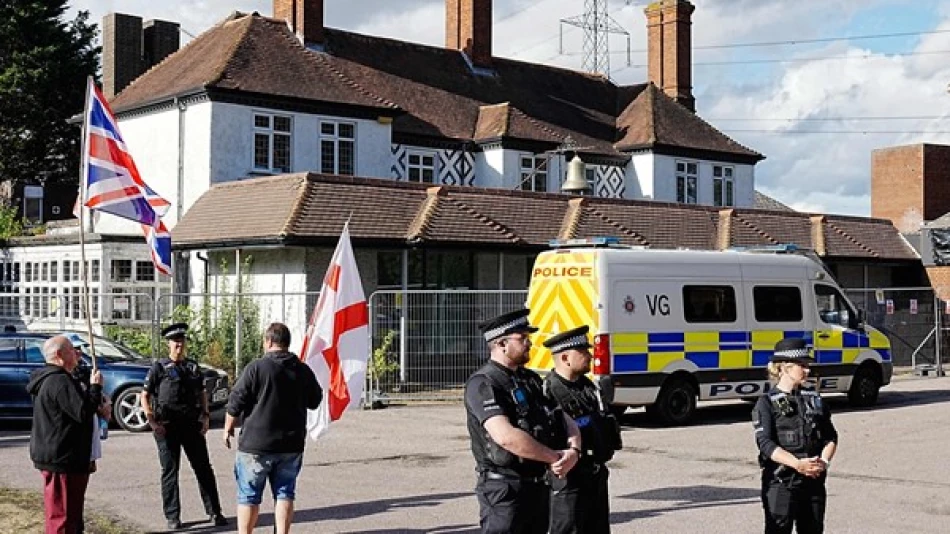
UK Overturns Ruling Barring Asylum Seekers from Hotel Accommodation
UK Court Victory Strengthens Labour's Asylum Hotel Policy Against Local Resistance
The UK Court of Appeal has overturned a lower court ruling that would have forced 138 asylum seekers to leave a controversial hotel in Essex by September 12, delivering a crucial legal victory for Labour's asylum accommodation strategy. The decision prevents what the government warned could have been a cascade of similar legal challenges across Britain, potentially undermining the entire hotel-based asylum system that houses thousands of refugees nationwide.
Legal Precedent Protects National Asylum Infrastructure
Friday's three-judge panel ruling represents more than a local dispute over the Bell Hotel in Epping—it establishes critical legal precedent protecting the government's ability to house asylum seekers without being derailed by local planning objections. Judge David Bean, delivering the decision, criticized the High Court judge for making "a number of errors in principle" and failing to consider that "closing one site means the need to accommodate them elsewhere in the system."
The original temporary injunction, granted under local planning laws, had created what government lawyers described as a potential blueprint for nationwide disruption. Several councils, including some Labour-controlled authorities, had already begun exploring similar legal challenges in their areas.
Political Tensions Over Asylum Accommodation Strategy
The Bell Hotel case illustrates the complex political dynamics surrounding asylum policy in modern Britain. While Labour councils were preparing to copy Essex's legal strategy, the national Labour government fought vigorously to preserve its accommodation system. This reflects the party's broader challenge of balancing humanitarian obligations with local political pressures.
Protests and Community Opposition
The Essex hotel became a flashpoint for weeks of protests, transforming from a local accommodation issue into a national political controversy. However, the Court of Appeal explicitly warned against allowing such demonstrations to influence legal decisions, noting that treating protests as legally relevant risked "encouraging further legal chaos."
Implications for Britain's Asylum System
The ruling stabilizes a hotel accommodation network that currently houses thousands of asylum seekers across the UK, a system that costs taxpayers millions annually while permanent housing solutions remain elusive. Had the lower court's decision stood, the government faced the prospect of a domino effect of legal challenges that could have collapsed significant portions of its accommodation infrastructure.
Strategic Government Response
The Labour government's decision to mount a swift appeal, supported by hotel chain Somaini Hotels, demonstrates the high stakes involved. The case reveals how local planning laws—typically used for development disputes—have become unexpected weapons in asylum policy battles, forcing the government to defend its national strategy through local legal frameworks.
This legal victory provides the government breathing room to develop longer-term asylum accommodation solutions while maintaining the current hotel system. However, it does not address the underlying community tensions that made the Bell Hotel a symbol of broader immigration debates, suggesting similar conflicts may emerge elsewhere as the government continues housing asylum seekers in local communities across Britain.
Most Viewed News

 Layla Al Mansoori
Layla Al Mansoori






